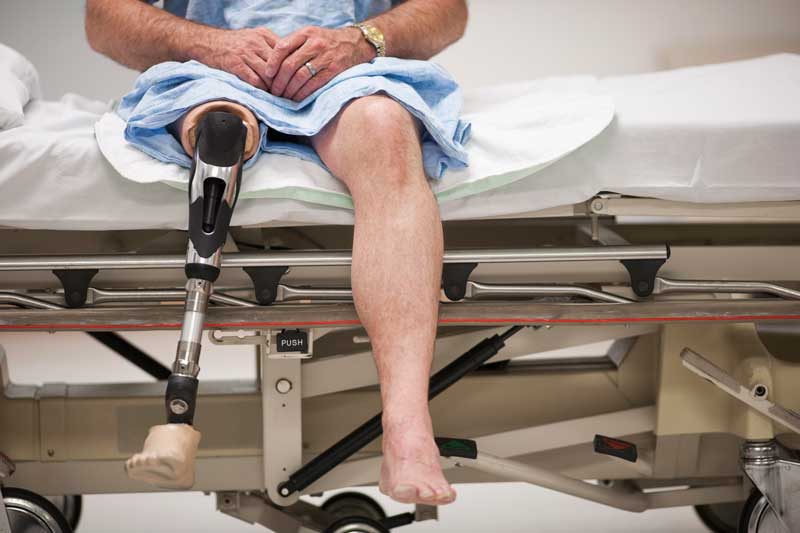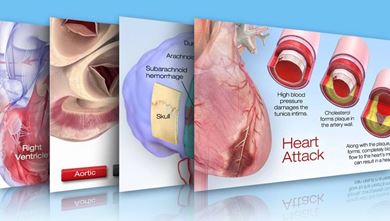Why PAD Matters

Why does peripheral artery disease matter?
Peripheral artery disease, or PAD, happens when fatty deposits build up in arteries outside the heart. This usually happens to the arteries supplying oxygen-rich blood to the brain, trunk, arms, legs and feet.
See how narrowed arteries can cause pain.
Is PAD dangerous or life-threatening?
Yes, PAD can be dangerous because these blockages can restrict circulation to your limbs and organs. Without enough blood flow, your important organs, arms, legs and feet can suffer damage. Left untreated, the tissue can become infected or die, a condition called gangrene. Limb amputation is a serious complication of PAD. If you have PAD, you also have an increased risk of coronary artery disease, heart attack and stroke.
Does PAD cause more health problems?
PAD may be the first warning sign of atherosclerosis. Atherosclerosis is the buildup of fatty plaque in the artery walls that narrows and blocks them throughout the body, including in the heart, brain, arms, legs, pelvis, kidneys and other organs. Fatty deposits also increase the risk for vascular swelling and blood clots that can block the blood supply and cause tissue death.
PAD is potentially a life-threatening condition but it can be managed.
Video: Top 3 Reasons to Take Your Socks Off







